Teaching recommenced this week at the University of Liverpool, and the TIDE project is likewise gearing up for a busy calendar over the coming spring and summer. The first weeks of 2017 have been a time of concentrated planning for the team, and we have been fortunate enough to be joined for several of these sessions by partners we have gained during our first semester. In the course of consolidating our plans and vision for TIDE, we have looked back across our first months, as well as forward to the months to come: something of a double blog here, then, to make up for the holiday break.
Our first term as a project concluded, just ahead of Christmas, with our formal launch. Held in the Old Library, School of the Arts, we were joined by School and Faculty colleagues from across a number of disciplines. Guests also included University engagement and development staff, postgraduates, academics from John Moores and Liverpool Hope universities, and representatives from community arts and regional cultural initiatives.
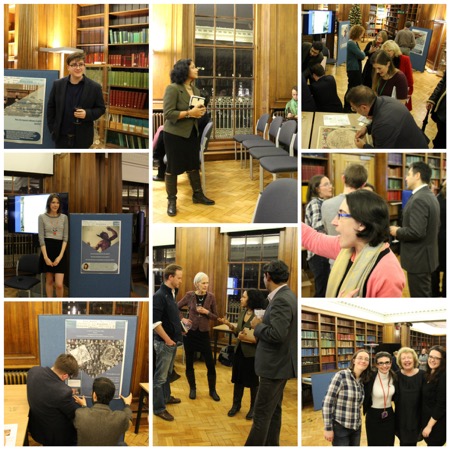
We were also delighted to host the award-winning poets Vahni Capildeo and Sarah Howe, as well as actors and staff from our neighbours, the Everyman Theatre. Our aim was to engage attendees creatively with some of the project’s central concerns. After a brief introduction to our work from Nandini Das, Project Director, and a welcome from Professor Paul Simpson, Head of English, each of the poets performed a selection of their recent works, before the actors read aloud extracts from a number of primary materials chosen by the team.
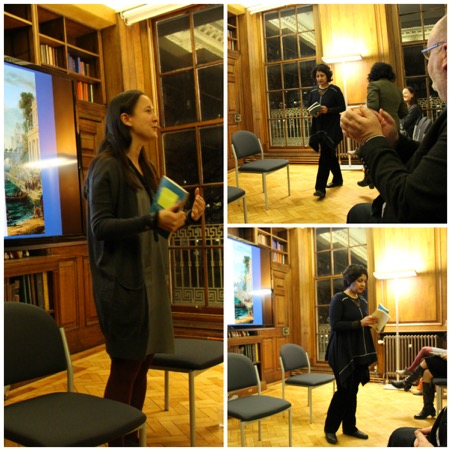
Our poets’ readings suggested some of the intricacies attached to human movement and travel. For its ‘enthralling exploration of self and place, of migration and inheritance’, Howe’s first full collection was awarded the T. S. Eliot Prize in 2015. Awarding Capildeo’s latest collection its 2016 winner, the Forward Prize for Poetry said of the volume, ‘When people in the future seek to know what it's like to live between places, traditions, habits and cultures, they will read this’. It was a real pleasure to meet the poets, and we are delighted that Sarah Howe will return to TIDE in 2018, as our Visiting Writer.
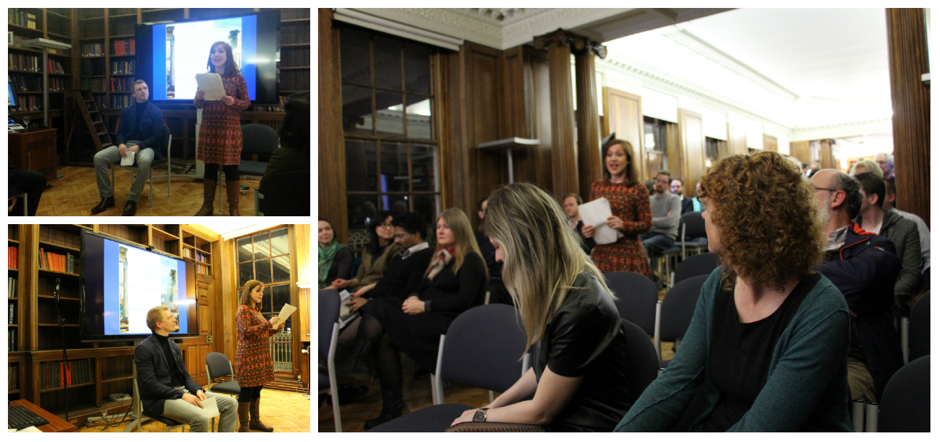
The performed extracts provided another stimulus for approaching cross-cultural encounters and exchange. Hearing first-hand written accounts, also read aloud, lent a new immediacy to these individual transcultural navigations, into and out of early modern England. A hat-making Flemish refugee writes to his wife on the attractions of Norwich – with a shopping list of items missed from home; an African scholar, by turns traveller, hostage, and convert, wryly invokes fable to consider our shifting motivations to belong. The rehabilitation and analysis of such voices, whether famous or forgotten, is core to the work envisioned for TIDE. This will be pursued, particularly, through our planned 24 case studies, running from the project’s second year.
Following these readings, attendees were invited to browse our displays, which posed questions underpinning our various research strands and detailed our current work, including that on Keywords (on which, more below). These stands prompted lively discussion amongst attendees, and highlighted many possibilities for partnership, outreach, and further project research.
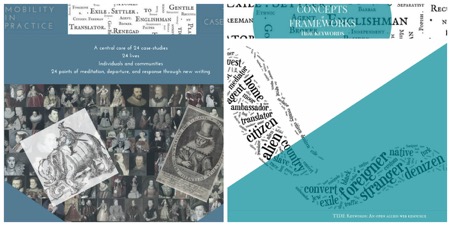
We were keen to use the evening to prompt interaction with our work, rather than merely to present it, so attendees were invited to chart their geographical histories onto a bespoke 1641 world map, using pins and string. Of the finished result, Professor Das wrote: ‘the map provided a potent visual example of . . . entangled trajectories; bringing to life the global connections between peoples and countries that the project seeks to illuminate’.
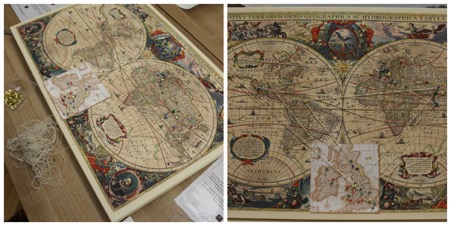
The launch also marked the arrival of our third postdoc. Joining us from Barcelona, João completes our initial team, and the launch seemed a fitting way to welcome him full-time onto the project. The international make-up of the TIDE team is, we feel, a strength of the project. As the project progresses, our planned activities across Europe, America, and Asia will no doubt benefit from the global links already represented within the TIDE office. With most of us travelling to take up our positions with TIDE, it seemed a fitting celebration when the team too, all now in situ, added our travel threads onto the map. This now holds pride of place – fully pinned, and a real conversation starter – over the office mantelpiece.
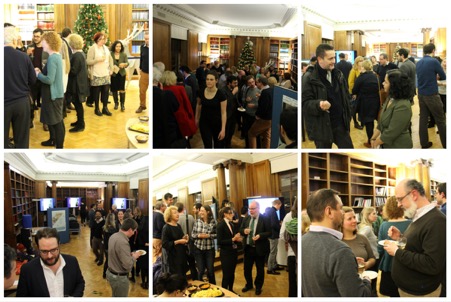
Finally, it was important to thank the strategic and support staff who assisted with establishing TIDE and the project office here in the School of the Arts in 2016. As TIDE’s administrator, I would like to extend our thanks, again, for the many forms of support offered so generously to us during our earliest days.
To read the University’s own coverage of the event, with details of our research and engagement aims, plus our Visiting Writers programme, please click here.
Moving on, we are particularly pleased to have now begun work with our departmental linguists, in consultation with linguistics-led projects further afield, on our Keywords strand. You can follow our progress through our chosen catalogue via #TIDEKeyword, on our Twitter account; we will be building an open access web resource in order to share our findings, over summer 2017.
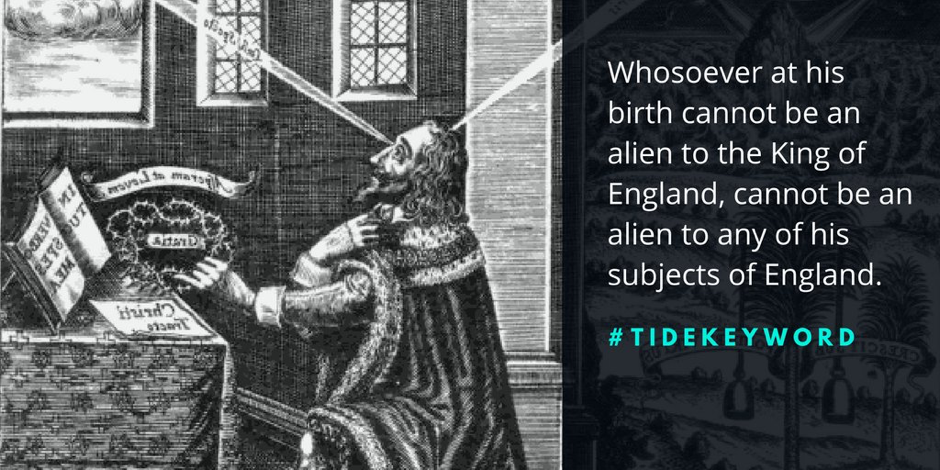
On social media, also look out for our upcoming #Gateofaccess digital media partnership, launching mid-February. TIDE will be working with curators and archivists to showcase early modern artefacts, in particular those objects which are lesser-known or not on permanent display.
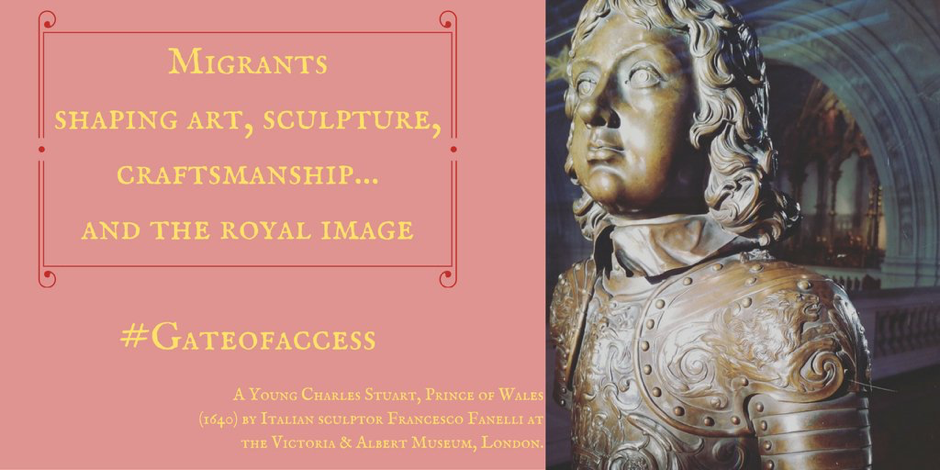
We are currently working with Special Collections staff at the University of Liverpool itself, before expanding the series into partnership with other local, national, and international collections. This week the postdocs have been lucky enough to delve through the University’s museums and libraries holdings, and were surprised by some of the objects our archivists had uncovered. We hope that by sharing these objects, all from 1550-1700, and, moreover, by examining their untold stories and contexts, the project will illustrate new and unusual routes into understanding the period.
And while you are online, watch out for a flurry of #TIDEtravels tweets over the next few months. Having started with a workshop in Warwick and meetings in Oxford last week, members of the team are soon off to a number of events in Manchester and London, with conferences in Barcelona, New Hampshire, and Illinois already scheduled in between now and June. Our social media will cover our out-of-office research trips: check out our Twitter and new Instagram pages for a peek at where we’re headed and what we’re up to.
As well as travelling ourselves, we look forward to the arrival in late April of our first Visiting Writer, novelist, essayist, poet, and playwright Fred D’Aguiar, Professor of English at UCLA. Fred D’Aguiar will fly from Los Angeles for a fortnight’s residence at TIDE, taking in both our Liverpool and London campuses.
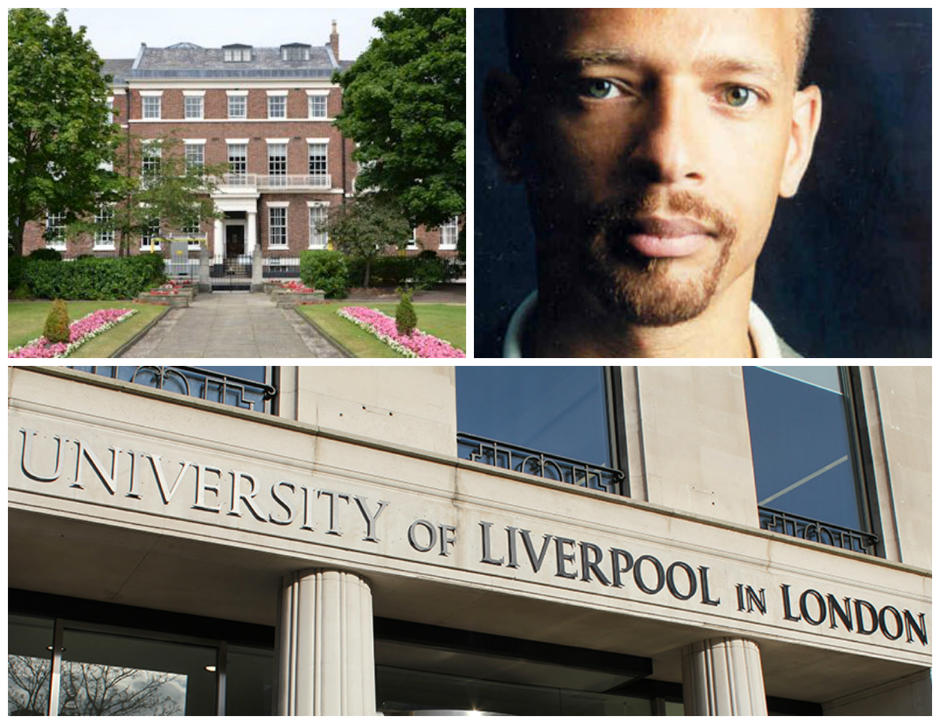
Right now our postdocs are surrounding themselves with archival materials, and collating their best findings to spark Fred’s imagination with insights into the diversities of early modern London, and just some of its many voices, before he joins us later this spring. Fred will then produce new creative work over the following six months, in response to his time spent with the project.
Either side of Fred’s visit, and again across our Liverpool and London sites, we are also planning half-day research seminars, in March and June. Aware of how swiftly our first year is passing, we also look ahead with excitement to the expansion of our team in our second year. Do check back in with us for further news of this, as well as events in the pipeline for autumn, very soon. With best wishes from all at TIDE!
Emma-Louise Whitehead (Project Admin)






